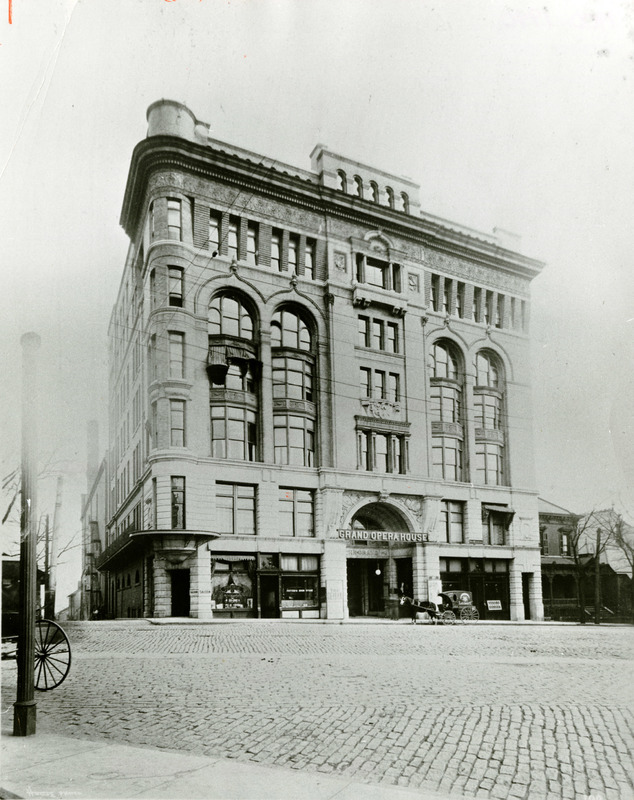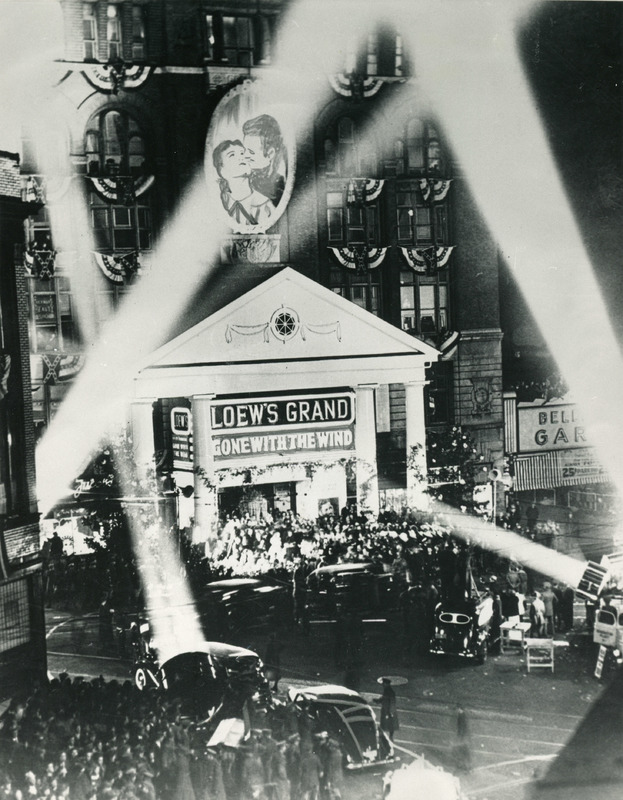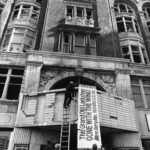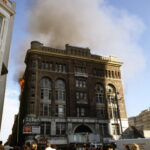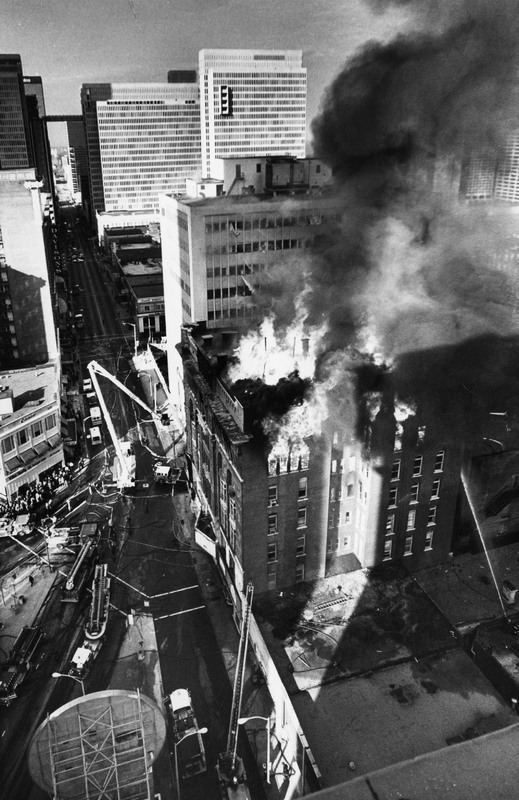Loews Grand Theatre
Constructed in 1893, the theatre was originally DeGive’s Grand Opera House, and hosted numerous concerts and operatic productions. In 1927 the Loew’s organization purchased the theatre and transformed it into an elegant movie house. In 1939 it hosted the premiere of Gone with the Wind which stars such as Clark Gable and Vivian Leigh attended.
An excerpt from Minnette Bickel’s article in the Atlanta Constitution, February 10, 1978. Bickel was the Projects Director for the Georgia Trust for Historic Preservation, Inc.
Laments for Loew’s Grand
When the DeGive’s Grand Opera House was opened, The Atlanta Constitution of Feb. 11, 1893, declared that “it was an occasion that suggested Paris.” Atlanta had arrived! It was the third largest structure of its kind in the United States. Actors, musicians and orators of fame graced its stage, not to mention the premiere of “Gone with the Wind”….
There were few who recognized the great attributes of this building. The Atlanta Urban Design Commission, chaired by Robert Segrest, did, and was working with the private sector toward an economical and viable use for the building which had fallen into disrepair and neglect. Under Randy Roark, a member of the commission and task force chairman for the Loew’s Grand, a lengthy feasibility study had been prepared and a model built by students from Georgia Tech.
The 1976 Tax Act allows for income producing structures listed on the National Register of Historic Places, such as the Loew’s Grand, to be eligible for amortization or accelerated depreciation over a 60-month period. No new depreciable structure could ever give these incentives. Several interested prospects for the Loew’s Grand were about to begin serious negotiations.
The Atlanta Urban Design Commission works without remuneration for the improvement of our city. They deserve a great deal of thanks and appreciation for the extensive efforts that went into trying to save the Loew’s Grand.
Excerpt from the Atlanta Constitution (1946-1984); March 3, 1978, page 5A, by columnist, Carolyn A. Busby.
The Fire
Due to the theatre’s historical status it could not be demolished. On January 30, 1978, however, the theatre was extensively damaged by a fire. Due to the prime location, some speculated the fire was arson, but no conclusive evidence had been found.There are several peculiarities that disturb me concerning the Loews Grand fire. Am I suffering from a classic case of paranoia or have other observers also noted the ironies?” First, it seems strange that the fire started just “as the heat was on” to save the historic building from destruction. Support to save the theater from demolition had grown recently by leaps and bounds and seemed destined to develop into a public uprising similar to the out-cry that occurred several years back during the Fox Theatre controversy.
The Loew’s Fire
The fire reportedly began in three separate places – suggesting arson which was reported to: be under investigation. However, if any additional information is needed to complete the investigation, I’m afraid it’s now conveniently buried in the pile of rubble that once was Loews Grand. After the fire, an important discovery was made, that even though much of the Loews building was gone, the theater itself was left practically unscathed by the roaring inferno and could therefore possibly still be saved. But alas, like fine-tuned clockwork, (a wrecking company) was already commissioned and waiting in the wings to tear down the fire damaged remains, barely allowing time for the leaping flames to subside and the smoldering embers to die to ashes.
The few feeble cries that dared voice, the hope that the Loews auditorium section was still salvageable were lost somewhere in the scurry of the fast paced plans already in motion to destroy another of Atlanta’s historic landmarks. Loews Grand was cremated and reduced to ashes in a week’s time•••
Carolyn A. Busby
Excerpt from the Atlanta Constitution (1946-1984); March 3, 1978, page 5A, by columnist, Carolyn A. Busby.
